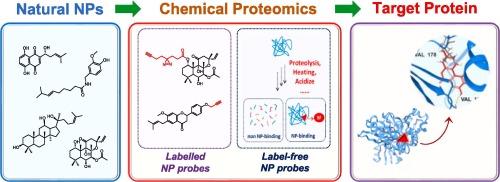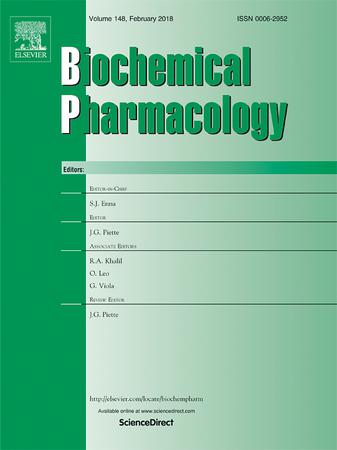Chemical proteomics accelerates the target discovery of natural products
IF 5.3
2区 医学
Q1 PHARMACOLOGY & PHARMACY
引用次数: 0
Abstract
More than half of the global novel drugs are directly or indirectly derived from natural products (NPs) because of their better selectivity towards proteins. Traditional medicines perform multiple bioactivities through various NPs binding to drug targets, which highlights the opportunities of target discovery for drug development. However, detecting the binding relationship between NPs and targets remains challenging. Chemical proteomics, an interdisciplinary field of chemistry, proteomics, biology, and bioinformatics, has emerged as a potential approach for uncovering drug-target interactions. This review summarizes the principles and characteristics of the current widely applied chemical proteomic technologies, while delving into their latest applications in the target discovery of natural medicine. These endeavours demonstrate the potential of chemical proteomics for target discovery to supply dependable methodologies for the target elucidation of NPs.

化学蛋白质组学加速了天然产品的目标发现。
由于天然产物(NPs)对蛋白质具有更好的选择性,全球一半以上的新型药物都直接或间接来自天然产物。传统药物通过各种 NPs 与药物靶点的结合发挥多种生物活性,这为药物开发带来了靶点发现的机遇。然而,检测 NPs 与靶点之间的结合关系仍然具有挑战性。化学蛋白质组学是化学、蛋白质组学、生物学和生物信息学的跨学科领域,已成为揭示药物与靶点相互作用的潜在方法。本综述总结了目前广泛应用的化学蛋白质组学技术的原理和特点,同时深入探讨了这些技术在天然药物靶点发现中的最新应用。这些努力证明了化学蛋白质组学在靶点发现方面的潜力,为阐明 NPs 靶点提供了可靠的方法。
本文章由计算机程序翻译,如有差异,请以英文原文为准。
求助全文
约1分钟内获得全文
求助全文
来源期刊

Biochemical pharmacology
医学-药学
CiteScore
10.30
自引率
1.70%
发文量
420
审稿时长
17 days
期刊介绍:
Biochemical Pharmacology publishes original research findings, Commentaries and review articles related to the elucidation of cellular and tissue function(s) at the biochemical and molecular levels, the modification of cellular phenotype(s) by genetic, transcriptional/translational or drug/compound-induced modifications, as well as the pharmacodynamics and pharmacokinetics of xenobiotics and drugs, the latter including both small molecules and biologics.
The journal''s target audience includes scientists engaged in the identification and study of the mechanisms of action of xenobiotics, biologics and drugs and in the drug discovery and development process.
All areas of cellular biology and cellular, tissue/organ and whole animal pharmacology fall within the scope of the journal. Drug classes covered include anti-infectives, anti-inflammatory agents, chemotherapeutics, cardiovascular, endocrinological, immunological, metabolic, neurological and psychiatric drugs, as well as research on drug metabolism and kinetics. While medicinal chemistry is a topic of complimentary interest, manuscripts in this area must contain sufficient biological data to characterize pharmacologically the compounds reported. Submissions describing work focused predominately on chemical synthesis and molecular modeling will not be considered for review.
While particular emphasis is placed on reporting the results of molecular and biochemical studies, research involving the use of tissue and animal models of human pathophysiology and toxicology is of interest to the extent that it helps define drug mechanisms of action, safety and efficacy.
 求助内容:
求助内容: 应助结果提醒方式:
应助结果提醒方式:


